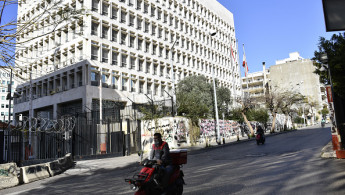IMF expected to give Lebanon $900 million in foreign reserves amid cash crunch
The International Monetary Fund (IMF) is considering granting Lebanon $900 million in August, the caretaker Minister of Finance, Ghazi Wazni, said on Wednesday.
The funds would be given to Lebanon as part of a proposed IMF plan to allocate member states $650 billion in Special Drawing Rights (SDRs).
SDRs are an IMF asset, not actual currency, and are meant to boost states' foreign currency reserves. They can be converted to hard currency if other IMF member states elect to "buy" them or if the body designates certain countries to purchase them.
Wazni told local outlet The Daily Star that the Central Bank of Lebanon (BDL) "can use the allocation to help improve the economic recovery in Lebanon and not to subsidise basic items".
Lebanon is currently undergoing a major economic collapse, which the World Bank deemed to be among the top three worst global economic crises since the 1850s.
The currency has lost more than 90 percent of its value since fall 2019, and prices of basic goods have continued to increase as the government lifts subsidies.
The country is currently ruled by a caretaker government, after the former government resigned in the wake of the August 2020 Beirut port explosion.
Former Prime Minister Saad Hariri is tasked with forming a government but political gridlock has led to a standstill.
Lebanon relies on the BDL’s foreign currency reserves to fund a wide variety of programmes, chief among them is subsidising the import of basic food, fuel, and medicine. However, currency reserves are quickly declining, standing at around $15 billion as of the last update in March.
The transfer of an additional $900 million of foreign currency reserves, through the SDRs transfer, could give Lebanon some much-needed liquidity. However, without concrete economic reforms, foreign reserves will be quickly consumed.
Lebanon has been engaged in negotiations with the IMF to form a financial rescue plan for the country since early 2020, but talks have yet to produce an actual plan. In a speech in early June, the caretaker prime minister said that negotiations with the IMF cannot resume until a new government is formed.





 Follow the Middle East's top stories in English at The New Arab on Google News
Follow the Middle East's top stories in English at The New Arab on Google News
![The UAE is widely suspected of arming the RSF militia [Getty]](/sites/default/files/styles/image_330x185/public/2024-11/GettyImages-472529908.jpg?h=69f2b9d0&itok=Yauw3YTG)
![Netanyahu furiously denounced the ICC [Getty]](/sites/default/files/styles/image_330x185/public/2024-11/GettyImages-2169352575.jpg?h=199d8c1f&itok=-vRiruf5)
![Both Hamas and the Palestinian Authority welcomed the ICC arrest warrants [Getty]](/sites/default/files/styles/image_330x185/public/2024-11/GettyImages-2178351173.jpg?h=199d8c1f&itok=TV858iVg)